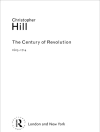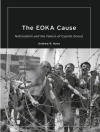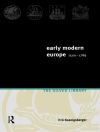During the Cold War Italy witnessed the existence of an anomalous version of a civil conflict, defined as a ‘creeping’ or a ‘low-intensity’ civil war. Political violence escalated, including bomb attacks against civilians, starting with a massacre in Milan, on 12 December 1969, and culminating with the massacre in Bologna, on 2 August 1980. Making use of the literature on national reconciliation and narrative psychology theory, this book examines the fight over the ‘judicial’ and the ‘historical’ truth in Italy today, through a contrasting analysis of judicial findings and the ‘narratives of victimhood’ prevalent among representatives of both the post- and the neo-fascist right.
Tabela de Conteúdo
List of Abbreviations
Preface
Acknowledgements
Chapter 1. Introduction
PART I: VILLAINS? THE JUDICIAL TRUTH
Introduction to Part I
Chapter 2. The Role of Italian Neofascism in Stragismo and the Strategy of Tension
Chapter 3. The Role of the Armed Forces and Intelligence Structures
Chapter 4. Interpretations of the Strategy of Tension in Accordance with Judicial Findings
Conclusion to Part I
PART II: VICTIMS? THE TRUTH ACCORDING TO THE NEO- AND POSTFASCIST RIGHT
Introduction to Part II
Chapter 5. Narratives of Victimhood: The Right’s Reconstructions and Interpretations of Stragismo
Chapter 6. The Self-narratives of Extreme-right Protagonists of the Political Conflict
Conclusion to Part II
Chapter 7. Conclusion
Bibliography
Index
Sobre o autor
Anna Cento Bull is Professor of Italian History and Politics at the University of Bath. Her publications include Social Identities and Political Cultures in Italy (Oxford: Berghahn, 2000); The Lega Nord and The Northern Question in Italian Politics (London: Palgrave, 2001) (with M. Gilbert) and Speaking Out and Silencing: Culture, Society and Politics in Italy in the 1970s. (Legenda: Oxford, 2005) (edited jointly with A. Giorgio).












